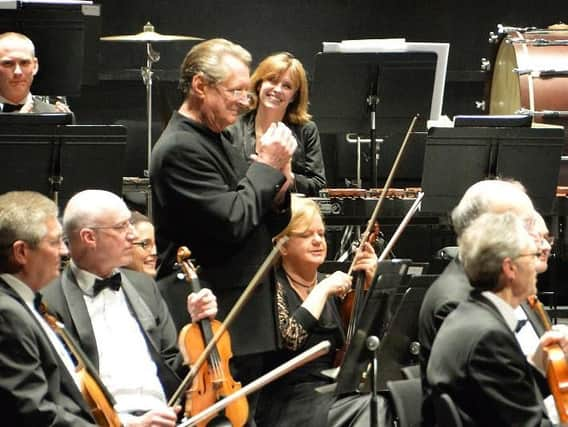Brighton Philharmonic Orchestra offers travel-themed concert


Artistic administrator Ian Brignall explains: “Symphonic concerts generally fall into the same pattern - an overture, a concerto, an interval and then a symphony. But when you introduce a theme into the concert, the shape changes completely.
For this our seventh concert in the Brighton Philharmonic Orchestra’s season, conducted by Barry Wordsworth, we have taken the theme of travel and the means to get to those far off exotic destinations. The holiday season is not that far away, so let your local orchestra introduce you to some stunning locations, and conjure up in music the means to get there.
Advertisement
Hide AdAdvertisement
Hide AdWe open with probably the most popular and evocative travel piece written for orchestra, summoning up the wildness of a Scottish coast and sea by a German composer on holiday – Felix Mendelssohn’s Overture to the Hebrides and the particular place he loved to watch the sea - Fingal’s Cave.
Hugo Alfvén was born in 1872 and started out as a virtuoso violinist, but after becoming a composer he stood out as a great advocator of Swedish national romanticism. His rhapsody for orchestra Midsommarvaka is in four sections and depicts a couple wandering alone in the Nordic light of mid-summer with a Swedish folk song band in the background – a fine description of youth, joy and humour wrapped up in melodic and harmonic elegance.
Anatoly Lyadov was a very influential Russian composer. He was a very private man who famously wrote to his great friend Rimsky Korsakov “Give me fairies and dragons, mermaids and goblins and I am thoroughly happy.” His short essay in orchestration, Le Lac Enchanté, shows what a talented composer he was, conjuring up the beauty of an enchanted lake in music.
Arthur Honegger was born in 1882 to Swiss parents and studied in Paris. He, like Dvo?ák, was a great steam train enthusiast, and he wrote his one movement orchestral piece Pacific 231 inspired by a powerful steam engine – the numbers signifying the wheel combination. Honegger said in an interview that his aim was not to imitate the sound of a locomotive, but to convey in musical form a visual impression of the engine quietly at rest, and the sense of exertion as it starts up and speeds off into the night.
Advertisement
Hide AdAdvertisement
Hide AdEric Coates (born in 1886) studied at the Royal Academy of Music and was Principal Viola of the Queens Hall Orchestra, playing under many of the great composers of the time including Elgar and Strauss. As a composer he came into his own in the 1920s and ‘30s as a brilliant writer of ‘light classical’ music. The London Suite is typical of his creative writing and consists of three dances: Covent Garden (Tarantella), Westminster (Meditation) and Knightsbridge (March). The latter was for many years the signature tune to In Town Tonight - in fact when it was first broadcast the BBC had over 20,000 phone calls asking the title of the piece!
George Butterworth sadly died in the trenches of the First World War and was a composer who used the folk songs of Sussex, many collected in 1907 along with his friend Ralph Vaughan Williams. The Banks of Green Willow was written in 1913 and depicts a typically English scene. Sir Adrian Boult premiered the work in Liverpool in 1914, his debut as a professional
conductor.
We finish this concert of travel, places and scenes with a brilliant fantasy for orchestra written by Tchaikovsky in 1880 after a trip to Rome with his brother. Capriccio Italien is a compositional essay of the sounds, folk tunes and street music of the Italian capital. Opening with a bugle call, inspired by the early-morning sound of the barracks near his hotel, he moves on to a string melody, then recreates the sounds of street music and, after a quick march, we end with an orchestral tarantella.
Tickets (£12.50-£39.50, 50% student/U18 discount, children just £1) from Brighton Dome Ticket Office, (01273) 709709, http://www.brightondome.org